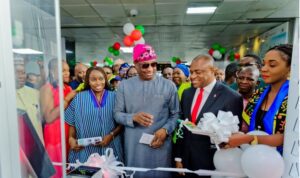CBN to issue N722.2bn TBs in Q3
By Kayode Tokede
The Central Bank of Nigeria (CBN) has disclosed that it seeks to raise a sum of N722.2 billion in cash through the issuance of Treasury Bills (TBs) in the (Q3) third quarter of 2021.
The apex bank made this known through its TB programme for Q3 2021, between June and August 2021.
According to the disclosure, a sum of N41.36 billion will be issued for the 91-day maturity period, N151.13 billion for the 182 days, while N529.68 billion for the 364 days maturity period, summing up to a total of N722.17 billion.
The report also shows that the offer amounts are subject to further changes at short notice and 1 unit of Nigerian Treasury Bills amounts to N1,000.
It is worth noting that the CBN sells treasury bills on a bi-weekly basis to investors and is one of the safest investments available. Interests are paid upfront and the principal paid in full upon maturity. This is a safe haven for passive investors who are looking to make additional income but with a very low-risk appetite.
Notably, since the beginning of the year, most of the known forms of investments in the country have been relatively volatile in terms of performance, with the stock market at a year-to-date decline, mutual funds also not at their best.
Basically, when the government is going to the financial market to raise money, it can do it by issuing two types of debt instruments – treasury bills and government bonds.
Treasury bills are issued when the government needs money for a shorter period while bonds are issued when it needs debt for longer periods.
Treasury bills are mostly sourced from financial institutions and are used as a controlling mechanism to help banks mop up excess liquidity and control the money supply.
Treasury bills have a face value of a certain amount, which is what they are actually worth. However, they are sold for less. For example, a bill may be worth N100,000, but you would buy it for N96,000. Every bill has a specified maturity date which is when you receive the money back.
The government then pays you the full price of the bill (in this case N100,000), giving you the opportunity to earn N4,000 from your investment. The amount that you earn is considered as the interest, or your payment for lending your money to the Government.
The difference between the value of the bill and the amount you pay for it is called the/ discount rate/ and is set as a percentage.




